Understanding Preventive Dental Care
Preventive dental care is a cornerstone of maintaining not only oral hygiene but also overall health. By embracing regular dental visits, proper home care, and community support, individuals can significantly reduce their risk of oral diseases such as cavities and gum disease. This article explores the multifaceted benefits, practices, and broader impacts of preventive dental care, highlighting its importance for all age groups and communities.
The Critical Role of Early Preventive Oral Health Habits
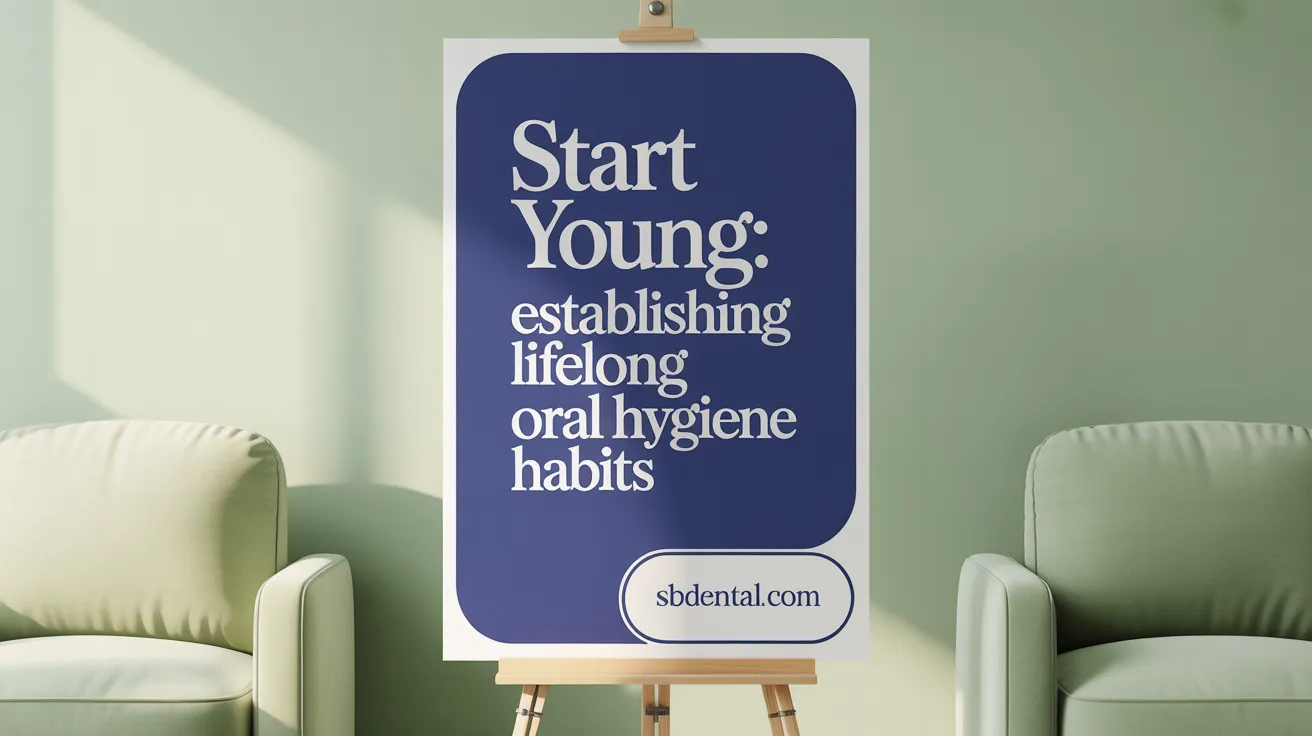
How important is developing oral hygiene habits early in life?
Developing good oral hygiene practices at a young age is essential for establishing a foundation for lifetime oral health. Early habits such as brushing regularly with fluoride toothpaste and learning proper technique help prevent cavities, gum disease, and other dental issues that can impact overall wellbeing. Consistent care from childhood supports healthier teeth and gums through adulthood, reducing the likelihood of complications and costly treatments later in life.
What is the prevalence and impact of untreated cavities in children?
Untreated cavities remain a significant problem; nearly half of children 11 years and younger suffer from tooth decay. Many of these cavities go untreated, which can lead to severe pain, infections, and difficulties with speech and nutrition. Poor oral health in children can also increase school absences, affecting their educational progress and development. The long-term impact includes ongoing oral health problems that may require extensive intervention.
How do dental sealants and fluoride treatments contribute to cavity prevention?
Dental sealants and fluoride treatments are highly effective preventive measures. Sealants act as protective coatings on the chewing surfaces of molars, preventing up to 80% of cavities in children by shielding hard-to-clean areas from decay-causing bacteria. Fluoride treatments strengthen tooth enamel, making teeth more resistant to acid attacks. Together, these interventions reduce future cavity rates and lower the costs associated with restorative dental care.
Are there disparities in oral health among different socioeconomic groups?
Significant disparities exist; children from lower-income families experience about twice the rate of dental caries compared to their more affluent peers. These children are also more likely to have untreated cavities due to barriers such as lack of dental insurance and the high expense of care. These disparities contribute to a cycle of poor oral health that can affect their overall health and quality of life, highlighting the need for improved access and equity.
| Topic | Detail | Impact/Benefit |
|---|---|---|
| Early oral hygiene habits | Developed in childhood, including brushing and flossing | Leads to lifelong oral health benefits |
| Untreated cavities in children | Nearly 50% prevalence with many untreated | Causes pain, affects nutrition and school |
| Dental sealants and fluoride treatments | Sealants prevent up to 80% of cavities; fluoride strengthens enamel | Reduces cavity rates and future treatment costs |
| Socioeconomic disparities | Poor children suffer twice as much decay; face more untreated cavities | Indicates need for improved access and equity |
Routine Preventive Practices and Their Impact on Adult Oral Health
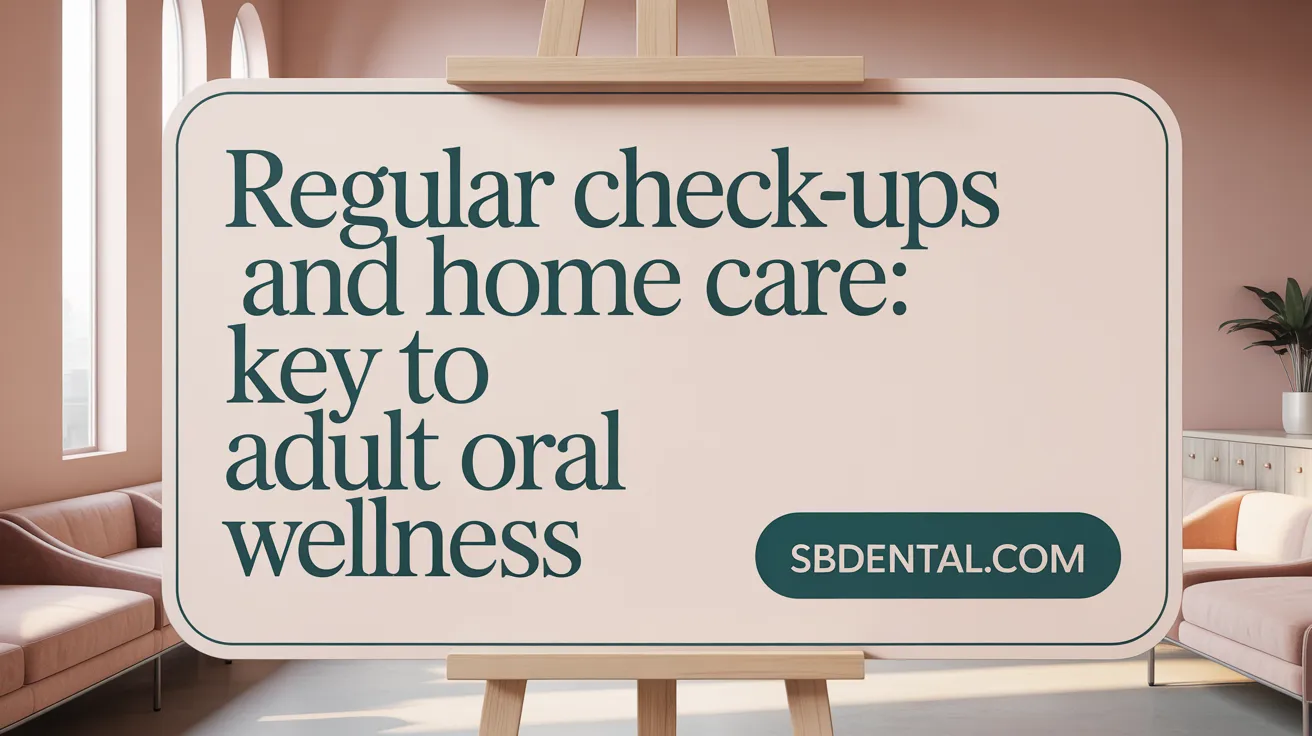
Why are regular dental visits important for adults?
Routine dental check-ups, typically recommended every six months, are crucial for early detection and prevention of oral health problems. These visits help identify cavities, gum disease, and oral cancer in their initial stages, enabling timely treatment that maintains overall oral health and reduces the need for complex procedures.
What are the recommended home oral hygiene practices for adults?
Daily oral care is fundamental to maintaining healthy teeth and gums. Adults should brush their teeth twice a day using fluoride toothpaste, floss daily to remove plaque and food particles between teeth, and clean their tongue to reduce bacteria that cause bad breath and oral diseases. Additionally, using an antibacterial mouthwash and limiting sugary foods support effective plaque control and reduce decay risk.
How does fluoride help in preventive dental care?
Fluoride plays a vital role by strengthening tooth enamel, making it more resistant to acid attacks from plaque bacteria. It can also reverse early signs of tooth decay. Using fluoride toothpaste and receiving professional fluoride treatments contribute significantly to reducing the incidence of cavities.
What oral health issues can preventive care help avoid in adults?
Preventive dentistry is effective in lowering the risks of common adult oral conditions such as cavities, gum disease, tooth loss, and even oral cancers. Maintaining good preventive practices not only promotes oral health but also supports cosmetic outcomes by preserving natural teeth and promoting a healthy smile.
The Economic and Health Benefits of Preventive Dental Care
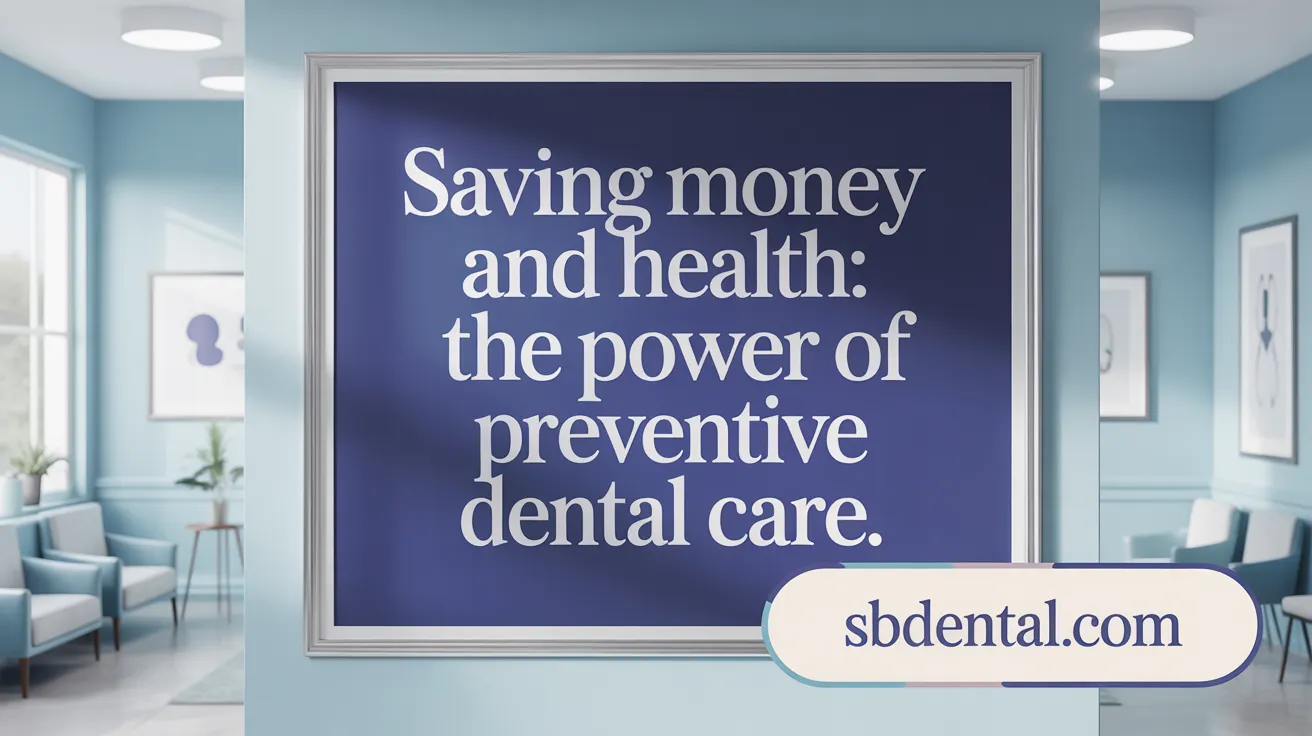
How does preventive dental care affect dental treatment costs?
Investing in preventive dental care is highly cost-effective. Studies indicate that every dollar spent on such care can save between $8 and $50 in future dental treatment costs. These savings come from reducing the need for invasive and expensive procedures like fillings, crowns, or extractions by catching and managing issues early (cost savings from early dental intervention).
What is the relationship between preventive care and emergency dental visits?
Preventive dental care significantly reduces emergency room visits for dental problems. Without regular preventive care, many individuals—especially from low-income groups—end up in emergency rooms with preventable dental conditions. These visits often provide only temporary relief rather than addressing the root causes, leading to recurring dental emergencies (emergency room visits for dental issues, emergency room visits for dental emergencies.
How does dental insurance coverage influence access to preventive dental services?
Dental insurance plays a crucial role in facilitating access to preventive dental care. Many insurance plans cover preventive services such as cleanings, exams, X-rays, fluoride treatments, and sealants at little or no cost to patients. Despite this, lack of dental insurance and the high cost of care remain major obstacles, particularly for underserved populations, contributing to oral health disparities (dental insurance barriers, barriers to preventive dental care).
What systemic health conditions are linked to poor oral health?
Poor oral health is linked to several systemic conditions including cardiovascular disease, diabetes, respiratory infections, Alzheimer’s disease, and complications in pregnancy. Preventive oral care reduces risks related to these diseases by controlling oral infections and inflammation, underscoring the importance of oral health for overall wellbeing (oral health and systemic health, oral hygiene and systemic health).
The economic and health improvements resulting from preventive dental care extend beyond just the mouth. Early interventions save money, reduce emergency reliance, increase access to care via insurance coverage, and contribute to better long-term general health.
Community and Institutional Initiatives Supporting Preventive Dental Health
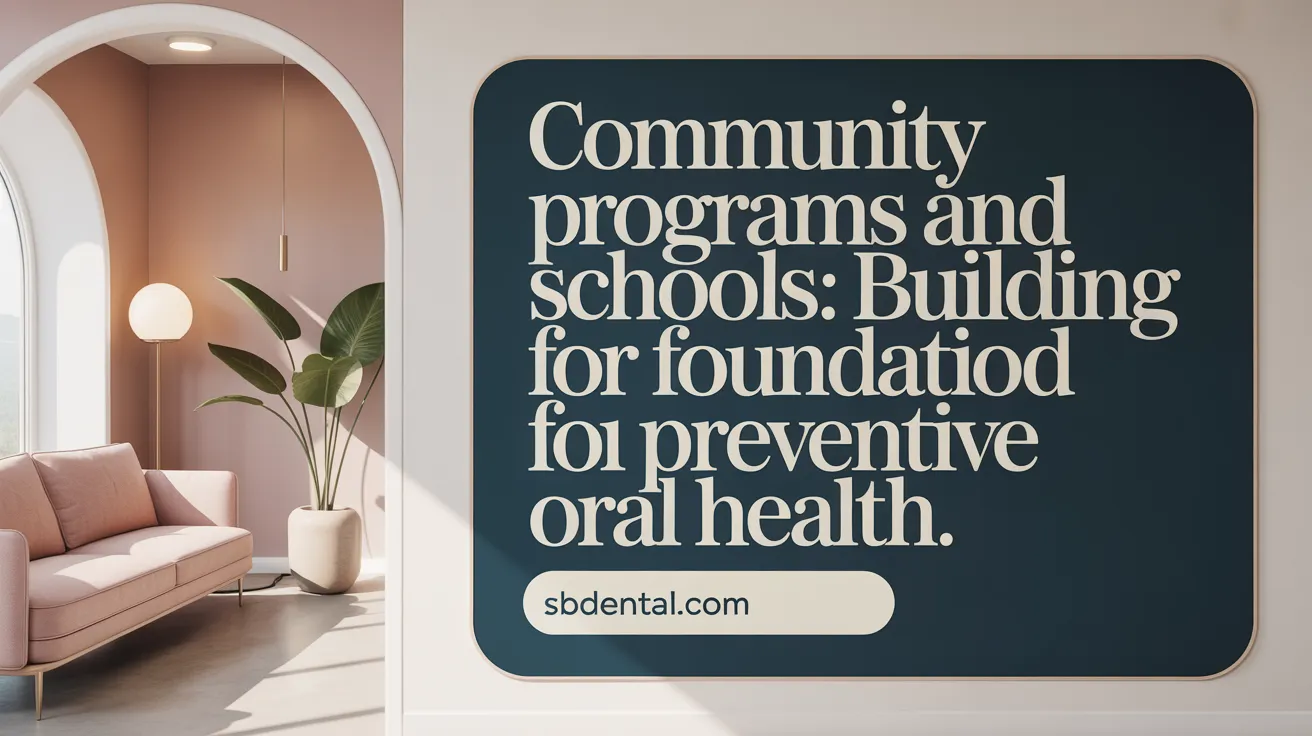
How do community programs improve access to preventive dental care?
Community programs such as CO-OP Chicago and various school-based sealant initiatives play a vital role in enhancing access to preventive dental care. They provide education and support to underserved populations, particularly focusing on families with low income. These programs help reduce disparities in oral health by delivering preventive services directly where children and families can easily access them.
What is the significance of school-based dental sealant programs?
School-based dental sealant programs are highly effective in preventing cavities among children. Dental sealants can reduce cavity incidence by up to 80% and protect chewing surfaces that are hard to clean. Such programs have been successful in preventing nearly one million cavities annually among children from low-income households. Additionally, these initiatives are cost-effective, producing significant savings in future dental treatment expenses.
What role do dental schools play in preventive care?
Dental schools like the University of Illinois at Chicago College of Dentistry serve as important providers of affordable and comprehensive preventive dental care. They offer routine preventive services to children and adults, including those with complex or special health care needs. These institutions also engage in community outreach and education, further supporting preventive oral health within underserved populations.
How does community water fluoridation contribute to oral health?
Community water fluoridation is a proven public health strategy that lowers the prevalence of dental caries significantly. It is effective across all age groups and social strata. Economically, fluoridated water saves billions in dental treatment costs nationwide and yields a high return on investment, approximately $20 for every dollar spent on fluoridation. This measure supports broad oral health improvements at a community level.
These combined efforts from community initiatives, schools, academic institutions, and public health programs create a multifaceted approach to preventing oral diseases, improving overall oral health outcomes, and reducing healthcare costs.
Preventive Dentistry: Comprehensive Practices and Patient Education
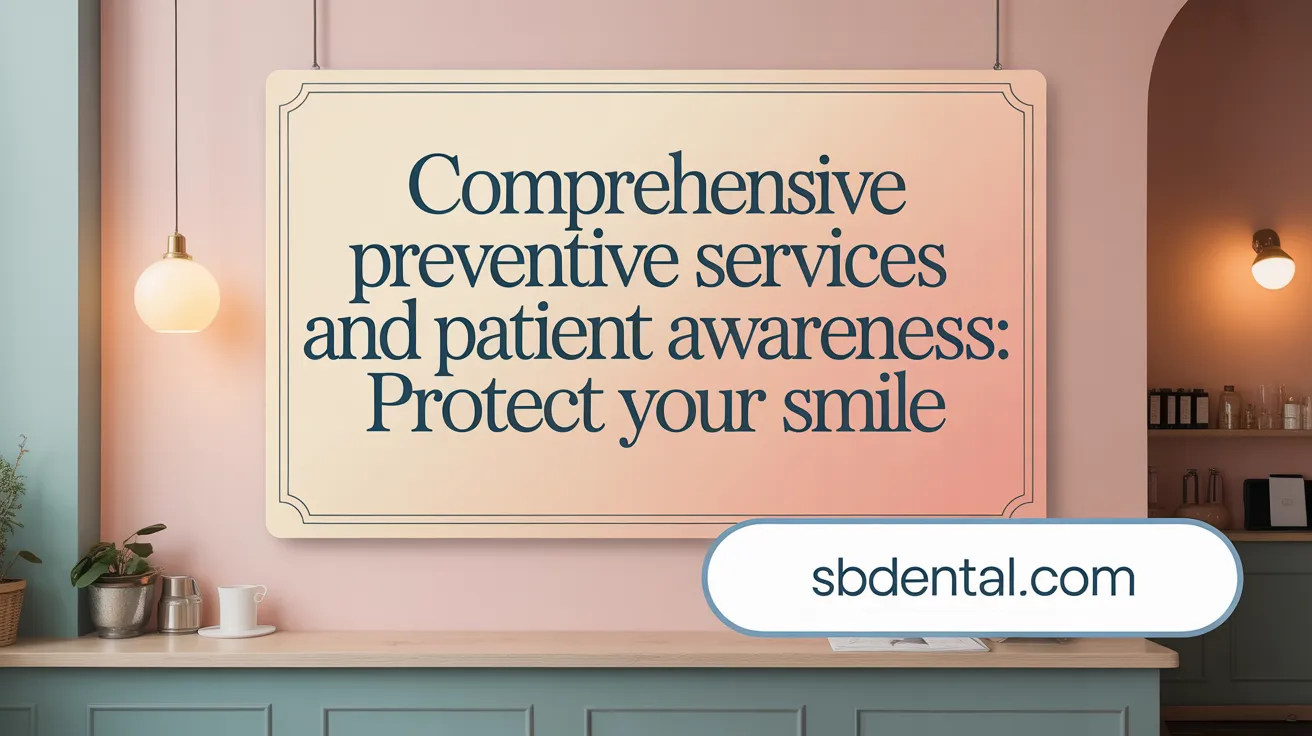
What are routine preventive dental services?
Routine preventive dental services involve multiple key procedures aimed at protecting oral health and catching issues early. These services include thorough dental exams, professional cleanings that remove plaque and tartar, routine dental X-rays for detecting hidden problems, fluoride treatments to strengthen teeth and prevent decay, dental sealants especially for children to block cavities in hard-to-clean areas, and oral cancer screenings. These interventions work together to maintain oral health and prevent the development of cavities, gum disease, and oral cancer.
Why is oral cancer screening important?
Oral cancer screening is a vital component of preventive dentistry because early detection greatly improves treatment success and survival rates. During regular dental visits, dentists examine the mouth, tongue, and surrounding tissues for any abnormal signs or lesions. Catching oral cancer early can lead to less invasive treatments and better outcomes, making these routine screenings a potentially life-saving measure (Preventive Dental Care).
How does patient education enhance preventive care?
Patient education plays a crucial role in preventive dental care by empowering individuals with the knowledge and skills they need for effective daily oral hygiene. Dentists and hygienists teach proper brushing and flossing techniques, instruct on the use of appropriate dental products, provide dietary advice, and encourage the avoidance of harmful habits such as tobacco use. This guidance helps patients prevent plaque buildup, gum disease, and cavities, significantly complementing professional dental care (oral hygiene, Preventive dental care).
What dietary and lifestyle habits support oral health?
Maintaining good oral health is supported by several dietary and lifestyle choices. It's important to limit the intake of sugary and acidic foods and beverages, which can erode tooth enamel and promote decay (oral hygiene). Avoiding tobacco products and excessive alcohol consumption reduces the risk of gum disease and oral cancer (Preventive dentistry benefits). Consuming a balanced diet rich in fruits, vegetables, and calcium supports gum and tooth strength (oral hygiene. Staying hydrated helps wash away food particles and maintains saliva flow, which protects the mouth naturally.
These comprehensive preventive practices, combined with patient education on oral hygiene and lifestyle, foster healthier smiles and can reduce the need for complex dental treatments (Value of Preventive Oral Health Care.
Lifelong Benefits of Preventive Dental Care Across All Ages
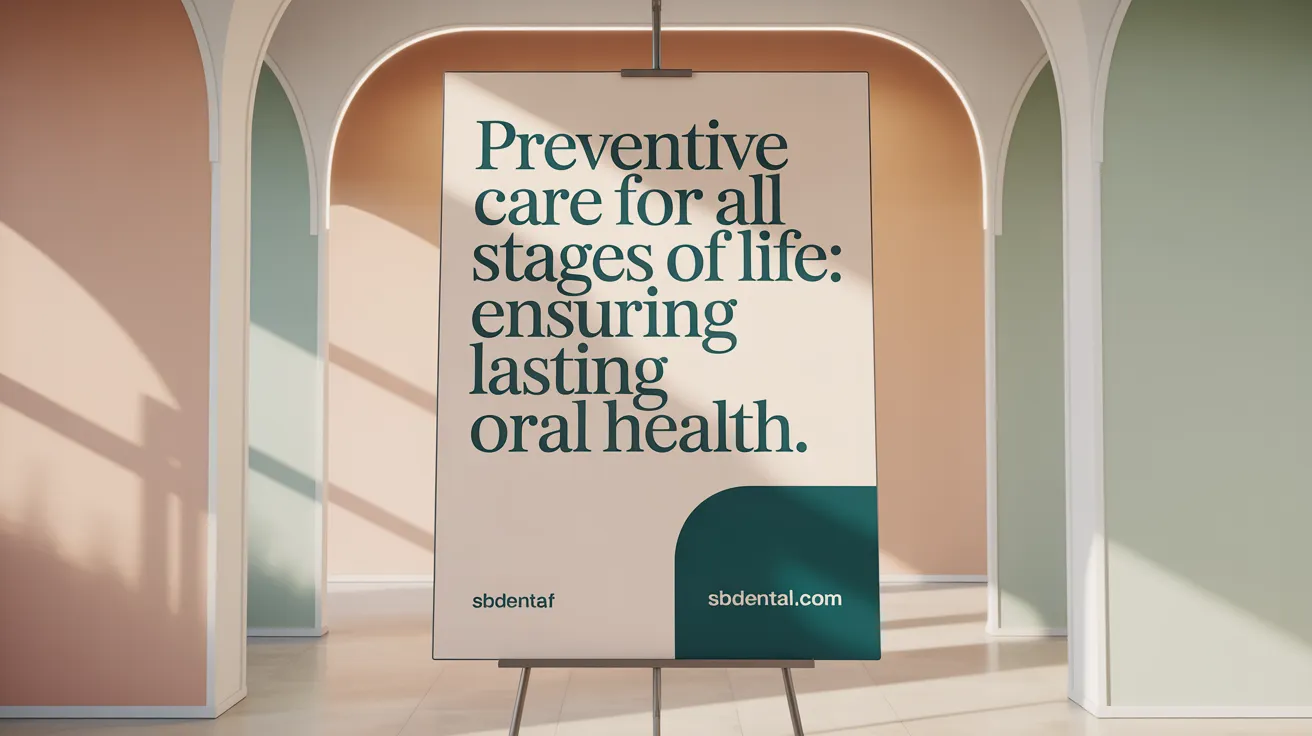
How does preventive dental care benefit children?
Preventive dental care for children lays the foundation for lifelong oral health. It helps establish good oral hygiene habits like regular brushing and flossing. Dental sealants and fluoride treatments protect teeth from decay, which is especially important since cavities are the most common chronic childhood disease. Early dental visits allow monitoring of tooth development and timely interventions. Good oral health reduces school absences linked to dental pain, supporting better education and growth.
What are the benefits of preventive care for adults?
Adults benefit by maintaining healthy teeth and gums, which contributes to overall well-being. Preventing gum disease and managing plaque buildup protects teeth. Preventive care supports cosmetic treatments, keeping smiles attractive. For those with dental work, such as bridges or crowns, regular check-ups extend their longevity and reduce complications. This is supported by the benefits of preventive dentistry.
Why is preventive care important for seniors?
Seniors face unique challenges like gum recession and dry mouth, which preventive care helps manage. Regular dental visits monitor existing restorations and identify new issues early. Maintaining oral health preserves important functions like chewing, speech, and facial expressions, enhancing comfort and quality of life. Preventive care among seniors is critical to maintain oral function and comfort.
How does preventive care influence the need for invasive dental treatments?
With regular preventive care, early signs of problems like decay or gum disease are detected and treated promptly. This approach reduces the necessity for invasive procedures such as fillings, extractions, or emergency treatments. It promotes confidence by preserving natural teeth and a healthy, attractive smile throughout life. Routine preventive dental care and early intervention reduce the need for complex dental treatments.
In summary, preventive dental care serves every age group by protecting oral health, enhancing quality of life, and lowering treatment costs. Developing good oral hygiene habits early and continuing consistent care leads to lasting benefits for oral function, aesthetics, and overall wellness.
Embracing Preventive Dental Care for a Healthier Tomorrow
Preventive dental care is an essential investment in lifelong oral and systemic health. Through early intervention, regular maintenance, and community support, preventive strategies reduce disease burden, healthcare costs, and disparities, while enhancing quality of life at every age. By prioritizing good oral hygiene habits, accessing professional dental services, and supporting public health initiatives, individuals and communities can enjoy lasting oral health benefits and overall well-being.
